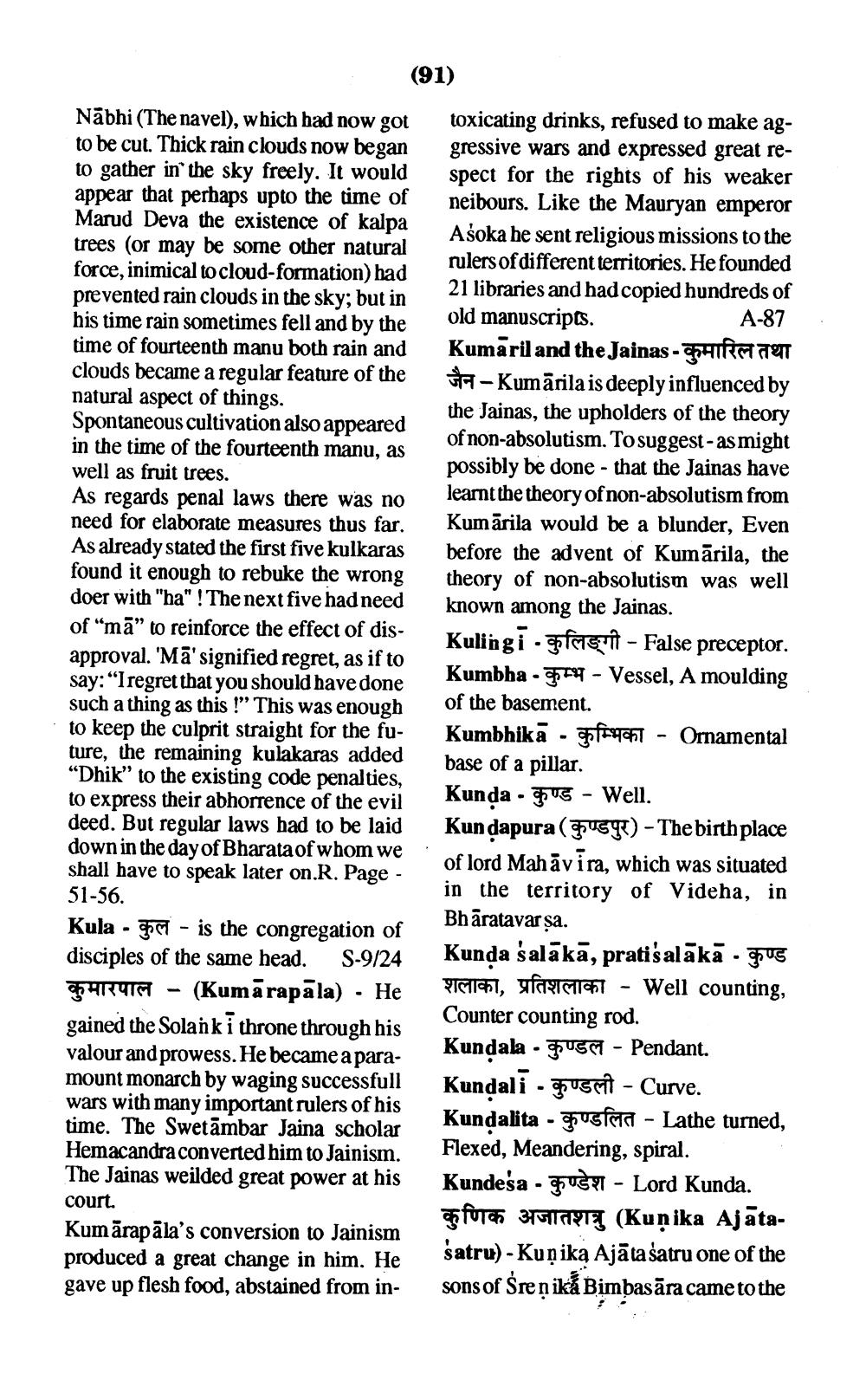________________
(91)
Nābhi (The navel), which had now got to be cut. Thick rain clouds now began to gather in the sky freely. It would appear that perhaps upto the time of Marud Deva the existence of kalpa trees (or may be some other natural force, inimical to cloud-formation) had prevented rain clouds in the sky; but in his time rain sometimes fell and by the time of fourteenth manu both rain and clouds became a regular feature of the natural aspect of things. Spontaneous cultivation also appeared in the time of the fourteenth manu, as well as fruit trees. As regards penal laws there was no need for elaborate measures thus far. As already stated the first five kulkaras found it enough to rebuke the wrong doer with "ha" ! The next five had need of "mā" to reinforce the effect of disapproval. 'Mā' signified regret, as if to say: "I regret that you should have done such a thing as this !" This was enough to keep the culprit straight for the future, the remaining kulakaras added "Dhik" to the existing code penalties, to express their abhorrence of the evil deed. But regular laws had to be laid down in the day of Bharata of whom we shall have to speak later on.R. Page - 51-56. Kula - - is the congregation of disciples of the same head. S-9/24
AR YTT - (Kumarapala). He gained the Solanki throne through his valour and prowess. He became a paramount monarch by waging successfull wars with many important rulers of his time. The Swetāmbar Jaina scholar Hemacandra converted him to Jainism. The Jainas weilded great power at his court. Kumārapāla's conversion to Jainism produced a great change in him. He gave up flesh food, abstained from in-
toxicating drinks, refused to make aggressive wars and expressed great respect for the rights of his weaker neibours. Like the Mauryan emperor Ašoka be sent religious missions to the rulers of different territories. He founded 21 libraries and had copied hundreds of old manuscripts.
A-87 Kumariland theJainas-कुमारिल तथा
- Kumārila is deeply influenced by the Jainas, the upholders of the theory of non-absolutism. To suggest -as might possibly be done - that the Jainas have learnt the theory of non-absolutism from Kumārila would be a blunder, Even before the advent of Kumārila, the theory of non-absolutism was well known among the Jainas. Kulingi - ofursuit - False preceptor. Kumbha - 297 - Vessel, A moulding of the basement. Kumbhikā - gofr901 - Ornamental base of a pillar. Kunda - ghus - Well. Kundapura (Susyt) - The birth place of lord Mahāvīra, which was situated in the territory of Videha, in Bhāratavar sa Kunda salākā, pratisalākā - que
1411967, yaxtalaht - Well counting, Counter counting rod. Kundala - qus 67 - Pendant. Kundali - qusmi - Curve. Kundalita - qusfta - Lathe turned, Flexed, Meandering, spiral. Kundeśa - GUSTI - Lord Kunda.
fuchs 37511AYTEL (Kuņika Ajātasatru) - Kuņika Ajātasatru one of the sons of Sreņiká Bimbas āra came to the




